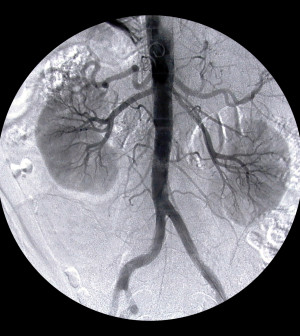- 8 Ways to Increase Dopamine Naturally
- 7 Best Breads for Maintaining Stable Blood Sugar
- Gelatin vs. Collagen: Which is Best for Skin, Nails, and Joints?
- The Long-Term Effects of Daily Turmeric Supplements on Liver Health
- Could Your Grocery Store Meat Be Causing Recurring UTIs?
- Are You Making This Expensive Thermostat Error This Winter?
- Recognizing the Signs of Hypothyroidism
- 10 Strategies to Overcome Insomnia
- Could Artificial Sweeteners Be Aging the Brain Faster?
- Techniques for Soothing Your Nervous System
Smaller Belly, Less Deli May Reduce Kidney Disease Risk, Study Finds


FRIDAY, Nov. 1Losing belly fat and limiting processed foods and other sources of dietary phosphorus might help reduce your risk of kidney disease, a new study finds.
Phosphorus is added to many processed foods to enhance their flavor and extend their shelf life. High levels of phosphorus are also naturally found in animal, dairy and vegetable proteins, said study leader Dr. Alex Chang, of Johns Hopkins University in Baltimore.
The study of nearly 500 overweight or obese adults enrolled in a healthy-lifestyle program found that a shrinking waistline and lower consumption of dietary phosphorus were associated with reduced levels of protein in the urine (albuminuria), which is an early sign of kidney disease.
After six months, participants’ waistlines shrunk an average of 1.7 inches and they had a 25 percent reduction in urine protein. The researchers also found that a 314-milligram reduction in phosphorus excretion resulted in an 11 percent decrease in urine protein.
The study appeared in the November issue of the American Journal of Kidney Diseases.
Other studies have suggested that weight loss may slow kidney disease progression, but this is the first research study to support losing belly fat and limiting phosphorus consumption as a possible way to prevent kidney disease from developing in the first place, Dr. Joseph Vassalotti, chief medical officer at the National Kidney Foundation, said in a foundation news release.
“A good rule of thumb is that if the food comes in a package, it’s likely to be high in phosphorus,” he said. “Approximately 90 percent of phosphorus additives are absorbed by the body.”
To limit phosphorus consumption, look for the root letters “PHOS” on food labels. But phosphorus isn’t always listed on food labels, Vassalotti said, so you need to know likely sources. They include:
- Processed foods such as dark colas, cereals and flavored waters
- Dairy products such as cheese, milk, cream, ice cream and yogurt
- Animal protein such as deli meats, organ meats, meat tenderizers, oysters and sardines
- Dried beans, lentils, peas, nuts and seeds (including peanut butter and other nut butters), cocoa (including chocolate-based drinks and puddings)
More information
The U.S. National Kidney Disease Education Program outlines how to keep your kidneys healthy.
Source: HealthDay
Copyright © 2026 HealthDay. All rights reserved.










